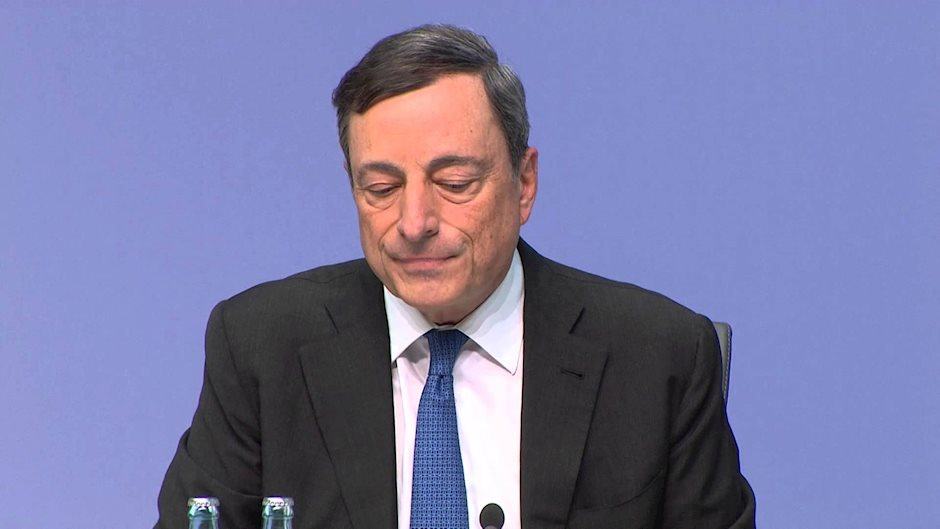Eurozone – Inflation surprises on the upside in June

Brexit – Brits hesitate to trigger leave process
Eurozone – Inflation surprises on the upside in June
Emerging Markets – industry sentiment remains subdued in June
Brexit – British PM steps down, uncertainty about next steps
Already last Friday, David Cameron announced his resignation by October in response to the Brexit decision. Thus, the referendum has already triggered a political crisis in the UK. Cameron also made clear that, under his leadership, the leave process will not be triggered. It is thus clear that the UK will need a reshuffle of its government before any negotiations with the EU can even start. Even snap elections cannot be ruled out at this stage. The process is even more complex, since the steep market reactions have spread uncertainty among the British people. But across the British Channel, the referendum has left its mark as well and the leaders of the European Commission and the European Parliament have been exposed to criticism.
It seems as if the politicians in the UK have been taken by surprise by the outcome of the referendum and now have to adapt to the new situation. One thus has to expect that some time will pass until the withdrawal negotiations will start officially. In addition, some sources say that it might be possible that, under certain conditions (snap elections or renegotiations), the UK might never trigger the leave process. In any case, the economic damage has already been done. The significant decline of the British pound (30-year low vs. the USD) indicates that investors have already started to withdraw capital from the UK in light of the heightened uncertainty. Companies and investors will not wait with their decisions until the UK and EU have reached an agreement. We thus expect that the UK economy will already in 3Q experience a significant slump in growth. The Eurozone, however, should in comparison develop better; we expect just subdued growth in 3Q. According to media reports, ECB head Draghi has this week told the heads of European governments that the ECB expects weaker economic growth (0.3-0.5%) for the Euro Area over the next three years.
In general, the uncertainty caused by the political instability remains high. We expect that several elections due over the course of the next 12 months in different countries will have a substantial impact on financial markets. First of all, the US is going to elect a new president in November this year. Due to the extreme positions of Republican candidate Donald Trump, these elections could be explosive. From the perspective of the Eurozone, the elections in the Netherlands (Parliament) and France (president) next spring will be in focus, since in both countries, populist parties are on the rise. However, it remains to be seen if the current political and economic chaos in the UK dampens the support for the populist parties in the Netherlands or France. Finally, in autumn 2017, parliamentary elections in Germany are due; they will also be of global interest.
Eurozone – inflation (+0.1% y/y) surprises on upside in June
The flash estimates for inflation and core inflation released this week surprised on the upside. Total inflation for June stood at +0.1% y/y (vs. - 0.1% y/y in May) and core inflation came in at +0.9% y/y (+0.8% y/y in May). For headline inflation, the energy component plays a major role, which, given the positive oil price development (stabilization), has exerted less downward pressure compared to previous months. With regard to core inflation, it can be seen that services seem to have stabilized at close to +1.0% y/y. Industry goods displayed less positive development, with price changes declining further, to +0.4% y/y (previously +0.5% y/y).
In light of the current robust economic recovery, an increase in core inflation should be expected. The recovery in core inflation has, however, stalled since mid/end-2015. This suggests that second-round effects are starting to play a role. In concrete terms, it seems that the low oil prices are affecting core inflation via production costs and production prices. Producer prices are currently 4% below levels from last year. Weak development of wage growth can also be an indicator of second-round effects. Faced with low inflation expectations, employees command lower wages and the high unemployment rate further weakens the bargaining position of employees. In order to prolong the trend of a declining unemployment rate, a stable economic recovery and structural reforms in many Eurozone countries are required.
Based on current oil prices, the economic recovery, low inflation expectations and the political situation, we forecast core inflation of +0.9% y/y by the end of 2016 and an increase to +1.2% y/y by the end of 2017. For headline inflation, we forecast an average level of +0.3% y/y for 2016 and +1.3% y/y for 2017.
Emerging markets – industry sentiment remained subdued in June
Unlike in the Eurozone, industry sentiment remained subdued in major emerging markets in June. Only in Russia, supported by a stabilizing crude oil price in a range of USD 45-50 per barrel, was a significant improvement visible. Also in India, the data points to growth of industrial production.
The published data shows that the Eurozone cannot expect significant growth impulses from emerging markets. Due to structural issues in several of these countries, we do not expect a clear improvement of the situation during the next few quarters. Nevertheless, the situation has stabilized for the time being.
Author

Erste Bank Research Team
Erste Bank
At Erste Group we greatly value transparency. Our Investor Relations team strives to provide comprehensive information with frequent updates to ensure that the details on these pages are always current.

















